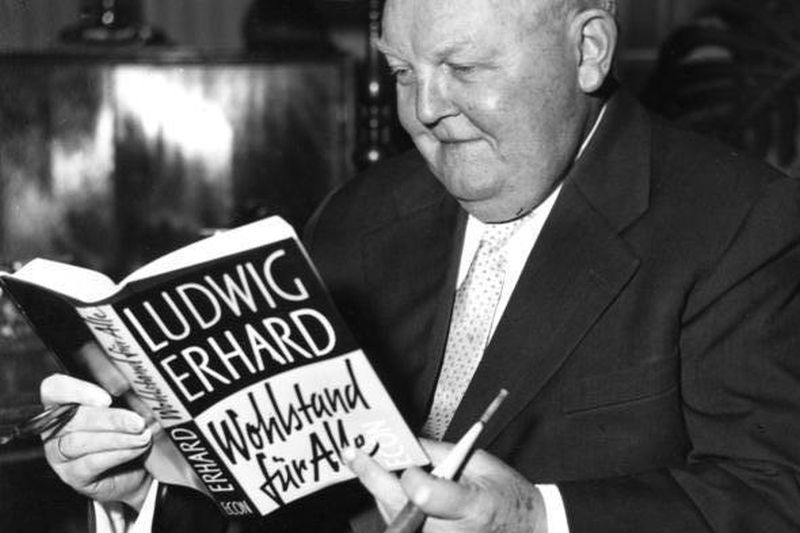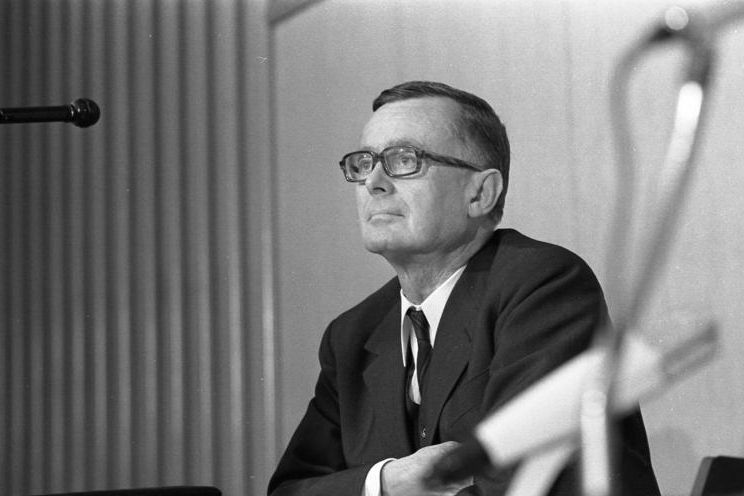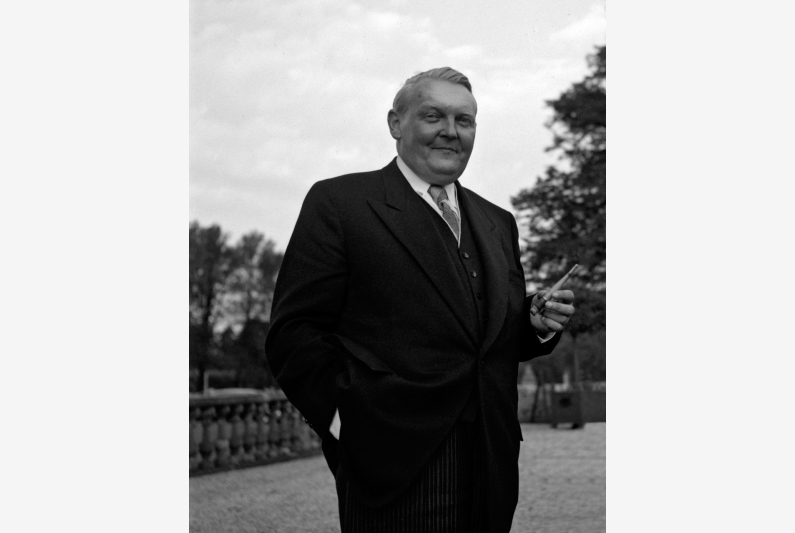Two logistical challenges arose following the 1949 founding of the Federal Republic and establishment of its capital in Bonn: (1) finding suitable premises for the government’s new ministries; and (2) figuring out where the staffs of these ministries were to be housed. The Ministry of Economic Affairs was to be headquartered in the former Gallwitz barracks. This facility contained ample space for the numerous staff members who had been stationed in Frankfurt since 1947 at the "Verwaltung für Wirtschaft" (Administrative Office of Economics), whose mission was to devise new economic policies for the British-American occupation zone.
The search for housing for the Ministry’s staff members delayed the move – a problematic situation that was repeatedly pointed out by Ludwig Erhard, who was head of the "Verwaltung für Wirtschaft" in the American and British occupation zone at the time, before becoming Germany’s first Minister of Economic Affairs. Hence the Gallwitz barracks – which in 1936, following the remilitarization of the Rhineland, had been built to accommodate 564 soldiers and 400 horses – filled up slowly. The move was not completed until 1951.
Ludwig Erhard was one of Germany’s most popular senior government officials in the 1950s, when life in Germany was gradually returning to normal, in the wake of the traumatic experiences the populace had endured during the war and immediately thereafter. Erhard was a self-confident man who also exuded strength. On 20 June 1948, the day the currency reform came into effect involving introduction of the D-Mark into the American, British and French occupation zones, Erhard, in his capacity as director of the "Bizonenverwaltung" (Bizonal Economic Council) in Frankfurt, took it upon himself to rescind the Allied price-fixing and production controls – an act that ushered in the social market economy era in Germany.


